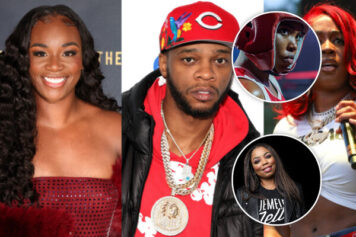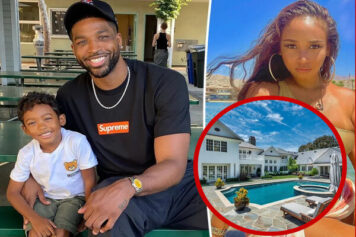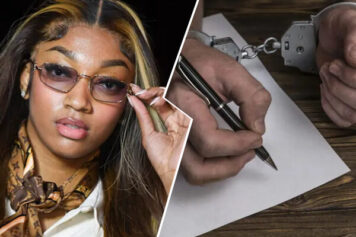It has taken some time for the world to digest the March on Washington that happened on Friday, August 28. It came in the midst of so much racial upheaval, vitrol aimed at the police, and frustration released by a country under the siege of a pandemic and a struggle for leadership.
Titled, “Commitment March: Get Your Knee Off Our Necks,” this massive movement for justice commemorated the 57th anniversary of the 1963 March on Washington.
Martin Luther King III and his partner in the struggle, Rev. Al Sharpton, have worked hard to continue the tradition of King’s father, the great freedom fighter. There are obvious reasons why this gathering was heftier on the hearts of many than the other memorial marches that they have sponsored in the past, starting with 2000 “Redeem the Dream” on.
The social context could play a part in that: America’s racial tension has boiled over into scalding reproof on its flagrant regard of bigotry. The march was successful because it bridged the historical legacy of freedom fighters with the urgency of youth. In King’s shadow, his words of the past are remixed by a generation that had no idea that he actually uttered them:
“We know through painful experience that freedom is never voluntarily given by the oppressor; it must be demanded by the oppressed. Frankly, I have yet to engage in a direct action campaign that was ‘well-timed’ in the view of those who have not suffered unduly from the disease of segregation. For years now I have heard the word ‘Wait!’ It rings in the ear of every Negro with piercing familiarity. This ‘Wait’ has almost always meant ‘Never.’ We must come to see, with one of our distinguished jurists, that ‘justice too long delayed is justice denied.’”
Upon juxtaposing this season with that revolutionary 60s, one that somehow has become impotent because history is a cruel betrayer, the ancestors behind 2020 made sure that their voices bore weight — echoed through the personalities of tens of speakers.
Appropriately, it opened with the voice of his MLK’s granddaughter, Yolanda Renee King. Small in stature, fiery in tone, she barely could see over the podium in which she spoke in front of.
Unlike the first march, her feminine energy was as wise as the oppressed girl Rhoda from the book of Acts, that cried out with the truth of freedom’s promise even as she understands the likelihood of her being heard is slim.
Despite that, she said:
“…Great challenges produce great leaders. We have mastered the selfie and TikTok, now we must master ourselves. Less than a year before he was assassinated, my grandfather predicted this moment. He said, ‘We were moving into a new phase of the struggle. The first phase was civil rights, and the new phase is ‘genuine equality.’
Genuine equality is why we are here today and why people are coming together all across the world, from New Zealand to New Jersey. He said, ‘That we must not forget the days of Montgomery. We must not forget the sit-in movement. We must not forget the freedom rides, the Birmingham movement, and Selma.’ Papa King, we won’t! My generation has already taken to the streets peacefully and with masks and socially distance to protest racism. And I want to ask the young people here to join me in pledging that we have only just begun to fight.”
This isn’t Yolanda’s introduction to public speaking. She also spoke at a US rally for gun control in 2018.
Cultural biases be damned, King III and Sharpton, by allowing her to speak shattered a glass ceiling that the patriarchs of the Civil Rights did not. King was not the only female to take the mic. From the earliest break to the culmination of the event, sheroes of all ages like this march were inclusive.
The spirit of Mamie Till, who on that day 65 years ago lost her son Emmett, was in the air as Tamika Palmer (Breonna Taylor’s mother), Letetra Widman (sister of Jacob Blake), Alissa Charles-Findley (sister of Botham Jean), Wanda Cooper Jones (mother of Ahmaud Arbery), Sybrina Fulton (mother of Trayvon Martin), Wanda Johnson (mother of Oscar Grant), and Maria Hamilton (mother of Dontre Hamilton) gave the face to those left to mourn after children are killed or injured as a result of aggressive policing and officer-involved violence.
Vice-President Kamala Harris, who recently made history as the first person of Jamaican (read Black) and Indian (read Asian) descent to win the second-highest office in the nation, left an empowering message about how important voting is for our community, especially now.
Porsche Taylor from Black Girls Ride and Aalayah Eastmond, a survivor of the Parkland school shooting in Florida, inspirited the mothers, grandmothers, and sister revolutionaries of our past, were moving and unequivocally part of that which made the day an event.
America does not feel inviting all the time to Black women, but there is magic that always happens when the opportunity is presented … and being able to witness this … added some Nubian pixie dust to the fight, fortifying us for the battles ahead.
Young Yolanda King was right, we won’t let her grandfather down, and “we have only just begun to fight.”



